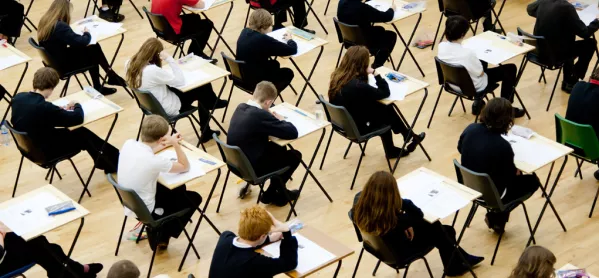How would your school compare with the world’s best?

England could become the first country where schools with 15-year-old students can benchmark their achievements against those of the highest- performing nations in the world with new tests based on the influential Programme for International Student Assessment (Pisa).
Pisa is used to assess the educational performance of entire jurisdictions, are being prepared for the use of individual schools.
The reading, mathematics and science assessments, developed by he Organisation for Economic Cooperation and Development (OECD), are due to be made available in the next academic year. The UK, the US, Spain, Australia and Japan have expressed interest in the Test for Schools initiative.
The exams will have a limited introduction in the US in 2013-14, with 300 schools expected to use them between November and April. But Alejandro Gomez Palma, the OECD analyst managing the project, said that they could be made available to all secondary schools (for children aged 11-18) in England during the same academic year, after a successful pilot that concluded in March.
“We might limit it to, say, the first 500 schools for the first round,” he said. “But we might not limit it at all.”
Schools will have to pay a minimum of £5,250 to take part. The tests will involve two hours of cognitive questions and a 30-minute questionnaire on students’ socio-economic backgrounds and attitudes to learning and their school.
The results will be used to compile lengthy reports on each school, showing how they compare with schools in jurisdictions that are top of the Pisa rankings, such as Shanghai in China. Schools will also be able to see how they measure up to schools with students from similar socio-economic backgrounds, in their own countries and overseas.
England’s Department for Education said that it will be up to schools to decide whether they wish to use the tests, but added that it is “supportive” of the scheme.
However, John Bangs, who sits on the trade union advisory committee of the OECD, said that teaching unions were opposed to the tests. They believe that schools in prosperous areas will use them to create rankings and as marketing tools, “undermining the efficacy” of Pisa, he said.
The tests are also “very narrow”, he added. “It is a big thing to say you are among the best schools in the world on the basis of tests in three subjects.”
Russell Hobby, general secretary of headteachers’ union the NAHT, said that some schools could see the tests as a worthwhile investment because of a lack of faith in public exams. “Confidence in the design and marking of our own exams (in England) is fairly low at the moment,” he said.
“So being able to have what might be perceived as a less politicised set of tests might be quite useful . A secondary school could afford pound;5,000 if they think it is important. The downside is there is already quite a lot of testing going on.”
The tests will use the same assessment framework as Pisa, which ranks countries’ education systems in international league tables. But the OECD stresses that there will be no equivalent global league tables for schools. Test results will remain the property of the individual schools and the OECD has said that it will not publicly release information that would allow rankings to be compiled.
Mr Palma said that it was very difficult for schools to “teach to the test” for the cognitive questions because they examine applied learning. He questioned whether schools would have any motive to do so, as the results would be “for them, not for league tables”.
One argument against Test for Schools is that the Pisa assessments it uses are designed to measure the knowledge and skills that students have acquired outside as well as inside school. Mr Palma acknowledged that Pisa measures “cumulative learning”.
“You can’t ascribe the performance of the students to the school,” he added. “That’s absolutely true . It is just a reference point for improvement.”
World of difference
A pilot of Test for Schools was run in 126 schools in the UK, the US and Canada, concluding in March. Spain is to run a limited pilot in 2013- 14.
The information that the OECD gathers through the tests will allow it to conduct further analysis and offer evidence-based advice on school improvement, in the same way as it does for national education systems.
Want to keep up with the latest education news and opinion? Follow TES on Twitter and like TES on Facebook
Keep reading for just £1 per month
You've reached your limit of free articles this month. Subscribe for £1 per month for three months and get:
- Unlimited access to all Tes magazine content
- Exclusive subscriber-only stories
- Award-winning email newsletters



